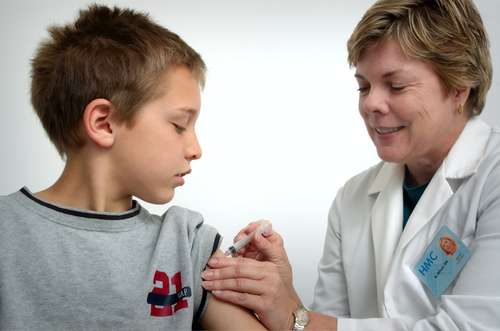Menopause is a significant turning point in a woman's life—a time of transformation both emotionally and physically. Many women may have heard about menopause symptoms like hot flashes and mood swings, but fewer know the deep connection between menopause and cardiovascular risk. As estrogen levels drop during the menopausal transition, the body loses a protective ally for heart health, leading to increased risks of heart disease and related conditions.
This shift in hormonal balance can feel like stepping into uncharted territory. You might wonder, "What does this mean for my heart?" The answer lies in how our bodies react to hormonal changes. Estrogen is known to help control blood pressure and maintain cholesterol levels, so its decrease can set the stage for elevated blood pressure, increased cholesterol, and a higher heart attack risk. Today, let's dive into the science and the personal stories behind this important transition.
Understanding Menopause and Cardiovascular Risk
The menopausal transition is not merely about end-of-cycle symptoms. It is also a signal for both other bodily systems and heart health adjustments. When estrogen levels drop, cardiovascular risk factors often rise, making it a critical time for women to be proactive with their health.
Emerging studies confirm that lower estrogen levels can reduce the natural defense mechanisms protecting the heart. This means that cholesterol levels may rise, and blood vessels can stiffen, which in turn increases the chance of developing heart disease. The journey through menopause is rugged and sometimes surprising; as we lose one protector, other risks can emerge unexpectedly.
Many women share that the transition feels like stepping off a well-known path into an unfamiliar landscape. One anecdote involves a friend who, after experiencing sharp hormonal changes, found herself grappling with a few extra pounds and higher blood pressure during her early postmenopausal years. Real experiences like these highlight why understanding cardiovascular risk during menopause is so essential.
Impact of Hormonal Changes on Heart Health
Hormonal changes can be compared to a delicate balance on a tightrope. With estrogen levels decreasing, several cardiovascular risk factors come into sharper focus, stirring concerns for women's health. This section explains how these changes impact heart health directly through blood pressure and cholesterol levels.
Estrogen plays a crucial role in maintaining good heart health; its decline leads to an uptick in blood pressure and a gradual rise in cholesterol levels. Cholesterol, much like a mischievous guest at a party, can settle in the wrong places if not managed carefully. Without enough estrogen in play, the arterial walls might experience increased stiffness, and plaque can start building up. This phenomenon is a major contributor to heart disease and even heart attacks later in life.
You might picture estrogen as the unsung hero working behind the scenes. When it slips away, suddenly, the heart is left with less protection, making every beat a bit more challenging than before. With these changes, the likelihood of developing conditions like cardiovascular disease increases. Dr. Suzanne Stein, a renowned expert in women's cardiology, once mentioned that addressing hormonal changes early is the key to effective cardiovascular disease prevention—a sentiment echoed by many in the medical community.
It is both a caution and a call to action: being aware of the evolving risk profile during the menopausal transition can truly empower women. Knowing what to expect can lead to early detection and lifestyle changes that make a tangible difference. Many women find that their doctor becomes their most trusted advisor during this time, offering a personalized roadmap to heart health.
Managing Cardiovascular Risk during Menopause
With great knowledge comes great responsibility. Managing cardiovascular risk during menopause involves a holistic approach in many ways. Beyond regular check-ups and medications, lifestyle plays a starring role. Are you taking time to nourish your body and mind?
Adopting a heart-healthy diet, engaging in regular exercise, and sticking to a stress-reduction routine are all fantastic tools. Exercise helps in lowering blood pressure and maintaining healthy cholesterol levels, while balanced nutrition can counteract the negative effects of hormonal changes. For example, foods rich in omega-3 fatty acids, leafy greens, and whole grains can bolster your cardiovascular system during this vulnerable period.
Consider a scenario where a friend of mine chose to walk for 30 minutes every day. Not only did her mood improve, but she also noticed that her blood pressure became more manageable. Small lifestyle tweaks like this can be the difference between feeling trapped by postmenopausal health risks and regaining control. Being proactive can prevent a sudden spike in heart disease or a heart attack risk that might otherwise go unnoticed until it's too late.
Another important aspect of cardiovascular disease prevention during menopause is routine health screenings. Regular consultations with your healthcare provider allow you to monitor key indicators such as blood pressure, cholesterol levels, and overall heart function. These check-ups help in catching potential issues before they grow into something more serious. Many women have reported that understanding their body’s rhythms through routine tests has provided a sense of relief and control over the changes they experience.
Remember, this is not a journey you need to walk alone. Friends, family, and even online communities offer invaluable support and firsthand insights. Hearing someone say, "I faced similar challenges and overcame them with a few changes, too," can be both inspiring and comforting!
Practical Tips and Lifestyle Adjustments
Every transition comes with a learning curve, and menopause is no exception. Practical tips are crucial during this period, and while no one-size-fits-all solution exists, small adjustments can pave the way for substantial heart health benefits.
Incorporate myriads of heart-healthy practices into your daily routine. Begin with a nutritious diet, keeping an eye on reducing saturated fats while increasing your intake of antioxidants. The American Heart Association often emphasizes these dietary strategies as effective measures in battling high cholesterol and high blood pressure. Coupled with this, consider engaging in stress-reducing exercises such as yoga or meditation to help stabilize your heart rate under pressure.
There is tremendous value in being consistent with your routine. Think of it as building a sturdy bridge over a river of hormonal changes. Over time, this bridge becomes resilient enough to support your heart through the turbulence that menopause brings. Personal stories abound of women who have successfully navigated these challenges by opting for small, manageable changes rather than sweeping overhauls.
Finally, keep an open discussion with your healthcare provider regarding your menopause symptoms and any signs of increasing cardiovascular risk. Transparency in communication can lead to more targeted interventions and help tailor a plan that meets your unique needs. Exploring possibilities like hormone replacement therapy, when appropriate, might also offer a buffer against the adverse effects of reduced estrogen levels.
By focusing on these adjustments, you can foster a proactive approach to empowering your heart. In doing so, you not only reduce the risk of developing severe heart conditions but also reclaim control over your health narrative.
In summary, menopause and heart health are deeply intertwined in a dance of hormonal changes and subsequent impacts on the body. From rising blood pressure to altered cholesterol levels, the decrease in estrogen can significantly heighten cardiovascular risk. However, with early detection, lifestyle modifications, and consistent healthcare consultations, you can navigate this challenging phase with confidence and resilience.




